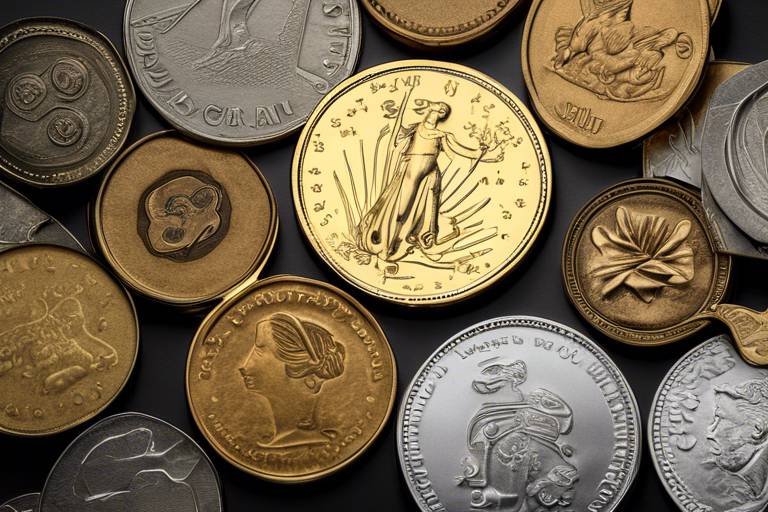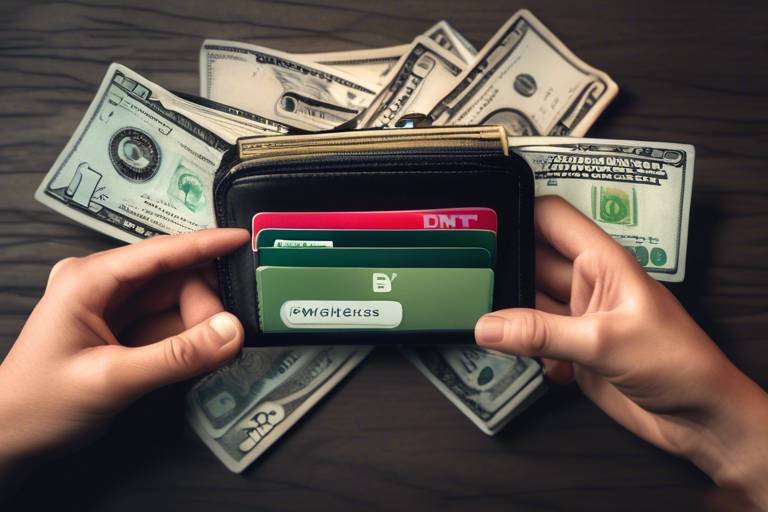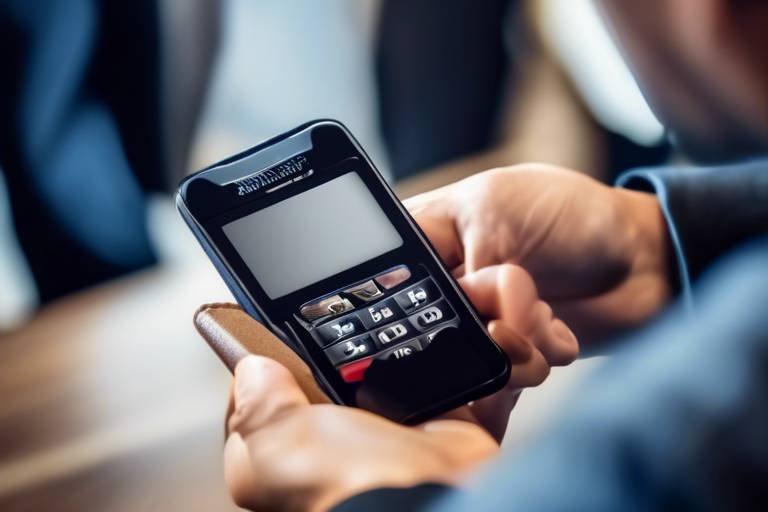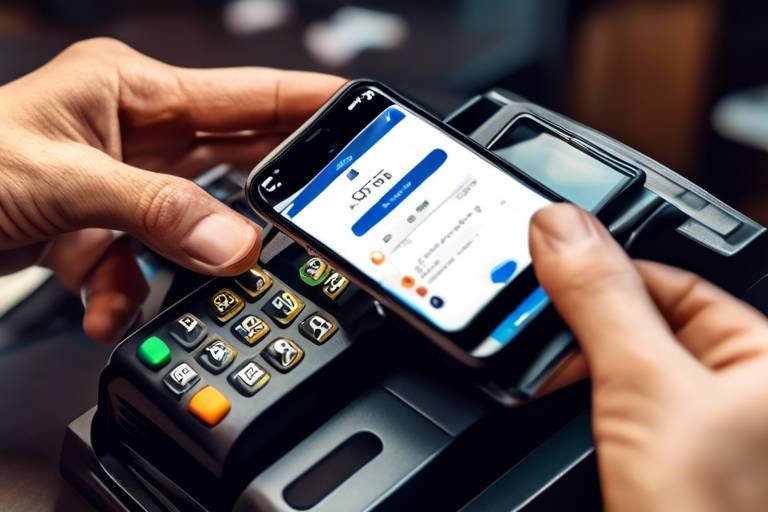The Importance of Wallet Compatibility with Various Coins
In the rapidly expanding world of cryptocurrency, the significance of wallet compatibility cannot be overstated. As digital currencies proliferate, the need for users to manage multiple types of coins efficiently has never been more critical. Imagine trying to juggle different wallets for Bitcoin, Ethereum, and countless altcoins; it's like having a separate bank account for every single currency you own. This fragmented approach not only complicates asset management but can also lead to missed opportunities and increased security risks.
Wallet compatibility plays a vital role in enhancing user experience, ensuring that individuals can navigate their digital assets without unnecessary hassle. When wallets support various coins, users can enjoy a more streamlined experience, allowing them to focus on trading and investing rather than wrestling with multiple platforms. Moreover, compatibility directly impacts security. A wallet that can accommodate a wide range of cryptocurrencies often incorporates advanced security measures tailored to different coins, safeguarding your investments against potential threats.
Additionally, the efficiency of managing diverse digital assets is significantly improved when a wallet is compatible with various coins. Users can execute transactions more quickly and easily, which is crucial in a market that operates 24/7. When every second counts, having a wallet that allows for seamless transactions across multiple cryptocurrencies can make all the difference. In essence, wallet compatibility is not just a feature; it’s a fundamental aspect of the cryptocurrency ecosystem that enhances user experience, security, and overall efficiency.
As we delve deeper into the nuances of wallet types, benefits, and future trends, it’s essential to recognize that the choices we make today can shape our cryptocurrency journey tomorrow. So, whether you are a seasoned investor or just dipping your toes into the crypto waters, understanding wallet compatibility is key to navigating this exciting landscape.

Understanding Wallet Types
When it comes to managing your cryptocurrency, understanding the different types of wallets is crucial. Just like you wouldn't store your valuable assets in just any old box, the type of wallet you choose can significantly affect your security, accessibility, and overall experience in the crypto world. There are three primary types of wallets: hardware wallets, software wallets, and paper wallets. Each of these wallet types has its unique features, advantages, and disadvantages, particularly concerning their compatibility with various coins.
Hardware wallets are physical devices designed to securely store your cryptocurrencies offline. They are often considered the safest option because they keep your private keys away from online threats. Imagine a vault where your digital assets are locked away, safe from prying eyes. Popular hardware wallets like Trezor and Ledger support a wide range of cryptocurrencies, making them an excellent choice for users looking to store multiple coins securely.
On the other hand, software wallets are applications or software programs that you can install on your computer or mobile device. They are more user-friendly and convenient for everyday transactions. With software wallets, you can quickly send and receive cryptocurrencies, much like using a digital wallet for your daily purchases. However, they are generally more vulnerable to hacking and malware attacks than hardware wallets. Within this category, you’ll find desktop wallets, mobile wallets, and web wallets, each offering varying levels of security and coin compatibility.
Lastly, we have paper wallets, which are essentially a physical printout of your public and private keys. They are a great option for long-term storage since they are completely offline. However, the downside is that if you lose the paper or it gets damaged, you could lose access to your assets forever. It's like having a treasure map; if you misplace it, you might never find your treasure again. Paper wallets can support multiple coins but require users to be very careful about how they are created and stored.
To summarize, here's a quick comparison of the three wallet types:
| Wallet Type | Security Level | Ease of Use | Coin Compatibility |
|---|---|---|---|
| Hardware Wallet | High | Moderate | Wide Range |
| Software Wallet | Moderate | High | Varies |
| Paper Wallet | High | Low | Varies |
Understanding these wallet types and their compatibility with various cryptocurrencies can help you make an informed decision about which one suits your needs best. In the fast-paced world of crypto, having the right wallet is like having the right tools in your toolbox; it makes all the difference in how effectively you can manage your digital assets.

Benefits of Multi-Coin Wallets
In the fast-paced world of cryptocurrency, having a wallet that supports multiple coins can be a game-changer. Imagine trying to juggle different currencies in your pocket, each requiring a separate wallet; it would be cumbersome, right? That's where multi-coin wallets come into play, offering a streamlined solution for managing various digital assets all in one place. This convenience not only enhances the user experience but also significantly improves the efficiency of transactions.
One of the primary advantages of using a multi-coin wallet is the convenience it provides. Instead of hopping from one wallet to another, users can access all their cryptocurrencies from a single interface. This not only saves time but also reduces the mental load associated with managing multiple wallets. Picture this: you’re at a café, and you want to pay for your coffee. With a multi-coin wallet, you can easily select the cryptocurrency you prefer, whether it's Bitcoin, Ethereum, or any other coin you have, all from one app. This seamless experience encourages users to engage more with their digital assets.
Furthermore, the efficiency of transactions is greatly enhanced with multi-coin wallets. These wallets are designed to facilitate quick exchanges between different cryptocurrencies. For instance, if you want to swap some of your Ethereum for Litecoin, a multi-coin wallet often allows for instant conversions without the need for external exchanges. This can be particularly beneficial in a market where prices fluctuate rapidly, as it enables users to capitalize on opportunities without delay.
Security is another significant benefit of multi-coin wallets. Many of these wallets come equipped with advanced security features tailored to protect a wide range of assets. For example, they may include two-factor authentication, encryption, and even multi-signature capabilities. By consolidating multiple assets into one secure location, users can implement comprehensive security measures that might be more challenging to manage across several single-coin wallets. This unified approach not only simplifies security management but also reduces the risk of losing access to funds spread out across different wallets.
Moreover, multi-coin wallets often provide users with valuable insights into their portfolio. Many come with built-in analytics tools that allow users to track performance across various cryptocurrencies, helping them make informed decisions about buying, selling, or holding assets. This level of visibility is crucial in the volatile world of crypto, where understanding market trends can lead to better investment strategies.
In summary, the benefits of using multi-coin wallets are manifold. From enhancing user experience and transaction efficiency to providing robust security measures and insightful analytics, these wallets are essential tools for anyone serious about managing their cryptocurrency portfolio. As the crypto landscape continues to evolve, having a multi-coin wallet could very well be the key to navigating the complexities of digital asset management.
- What is a multi-coin wallet? A multi-coin wallet is a digital wallet that allows users to store and manage multiple cryptocurrencies in one place.
- Are multi-coin wallets safe? Yes, many multi-coin wallets offer advanced security features such as encryption and two-factor authentication to protect your assets.
- Can I exchange cryptocurrencies within a multi-coin wallet? Many multi-coin wallets provide built-in exchange features, allowing users to swap cryptocurrencies without needing to go to an external exchange.
- How do I choose the right multi-coin wallet? When choosing a multi-coin wallet, consider factors like security features, user interface, and the range of supported cryptocurrencies.
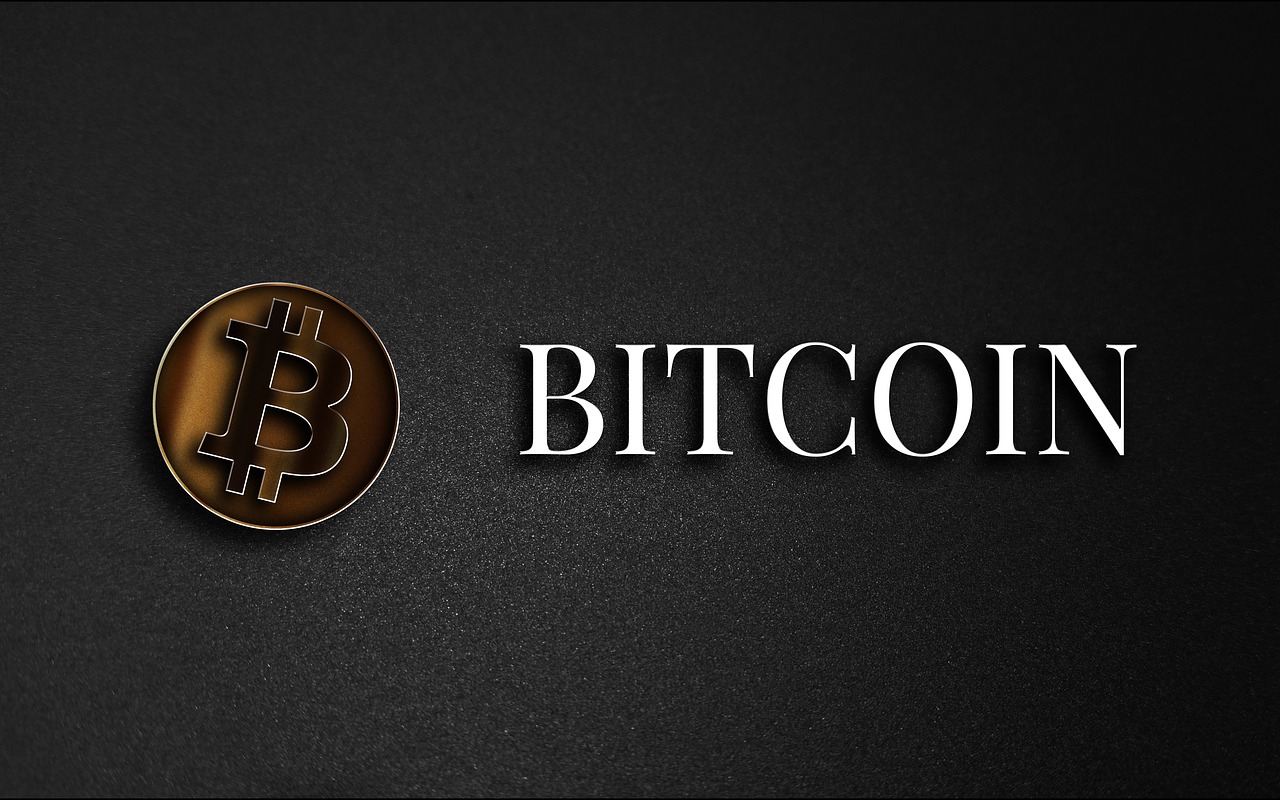
Enhanced User Experience
When it comes to the world of cryptocurrencies, user experience is everything. Imagine trying to navigate a maze blindfolded; that’s what it feels like to manage your digital assets with a wallet that lacks compatibility with various coins. A wallet that supports multiple cryptocurrencies can transform the daunting task of managing assets into a smooth and enjoyable experience. With a well-designed multi-coin wallet, users can effortlessly switch between different cryptocurrencies, making transactions feel as easy as flipping a switch.
One of the key advantages of wallet compatibility lies in its ability to create a seamless interface. A user-friendly dashboard allows individuals to view their entire portfolio at a glance, eliminating the stress of juggling multiple wallets. This intuitive design not only saves time but also enhances the overall satisfaction of managing digital assets. Instead of feeling overwhelmed by a cluttered interface, users can focus on what truly matters: making informed investment decisions.
Moreover, the convenience of having all your coins in one place cannot be overstated. Think of it like having a Swiss Army knife instead of a toolbox filled with individual tools. With a multi-coin wallet, you can access all your digital currencies without the hassle of logging into different platforms or remembering multiple passwords. This not only simplifies the process but also reduces the risk of forgetting important credentials, which can lead to lost assets.
Additionally, enhanced compatibility often comes with advanced features that improve the user experience. For example, many wallets today offer real-time market data, allowing users to monitor price fluctuations and make quick decisions. This is particularly beneficial for those who engage in trading or are looking to capitalize on market trends. Imagine being able to see the value of your assets update in real time, while also having the ability to execute transactions instantly. It’s almost like having a personal financial advisor right at your fingertips!
Furthermore, wallet compatibility fosters a sense of community among users. When individuals can easily share their experiences and tips about different coins, it creates an environment of collaboration. This is especially important in the cryptocurrency space, where information is power. Users can learn from one another, share strategies, and even collaborate on investments, all facilitated by a wallet that supports a variety of coins.
In conclusion, the importance of wallet compatibility in enhancing user experience cannot be ignored. It not only simplifies management but also offers a suite of features that empower users to take control of their digital assets. As the cryptocurrency landscape continues to evolve, those who prioritize wallet compatibility will undoubtedly find themselves at an advantage in this exciting and dynamic market.
- What is a multi-coin wallet? A multi-coin wallet is a type of cryptocurrency wallet that supports a variety of digital currencies, allowing users to manage multiple assets in one place.
- Why is wallet compatibility important? Wallet compatibility is crucial because it enhances user experience, simplifies asset management, and provides access to a broader range of cryptocurrencies.
- Can I use a single-coin wallet for multiple cryptocurrencies? No, single-coin wallets are designed to store only one type of cryptocurrency, which limits flexibility and convenience.
- How do I choose the right wallet for my needs? Consider factors such as security features, user interface, supported cryptocurrencies, and additional functionalities when selecting a wallet.
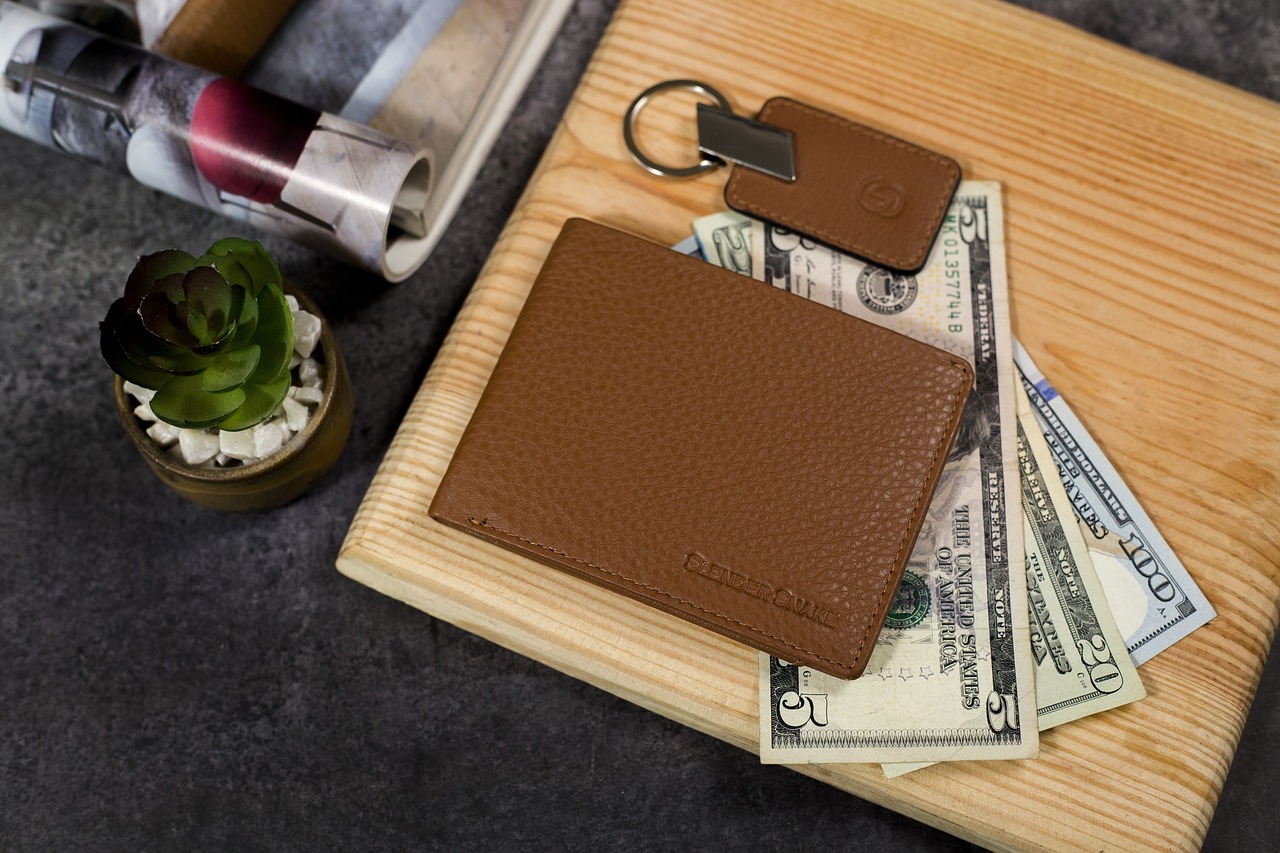
Streamlined Transactions
When it comes to managing cryptocurrencies, are not just a luxury—they're a necessity. Imagine trying to navigate a bustling city without a map. That's how cumbersome it can feel to conduct transactions with a wallet that only supports a single cryptocurrency. Multi-coin wallets, on the other hand, act like your personal GPS, guiding you through the maze of digital assets with ease and efficiency. They provide the ability to send, receive, and exchange multiple cryptocurrencies from a single interface, which can significantly reduce the time and effort required in managing your assets.
One of the standout features of multi-coin wallets is their ability to facilitate instant exchanges between cryptocurrencies. For instance, if you hold Bitcoin and want to purchase a service that only accepts Ethereum, a compatible multi-coin wallet allows you to swap your Bitcoin for Ethereum without needing to go through a separate exchange platform. This not only saves time but also minimizes transaction fees, which can add up if you're frequently moving assets between different wallets or exchanges.
Moreover, the user experience is greatly enhanced with streamlined transactions. The interface of a multi-coin wallet is designed to be intuitive, allowing users to easily navigate through their various assets. Features like one-click transactions and real-time updates on market prices make it easier to make informed decisions quickly. For example, if you see a sudden spike in the price of a coin you hold, you can swiftly execute a transaction without the hassle of switching applications or logging into multiple accounts.
Let's not forget about security during these transactions. Multi-coin wallets often come equipped with advanced security protocols that protect your assets while you trade. Whether it’s through two-factor authentication, biometric logins, or encryption, these wallets ensure that your transactions are not only fast but also secure. In a landscape where cyber threats are prevalent, knowing that your assets are protected can give you peace of mind.
In essence, streamlined transactions through multi-coin wallets significantly enhance the overall cryptocurrency experience. They provide users with the ability to manage multiple assets efficiently, reduce costs, and maintain a high level of security. As the world of digital currencies continues to evolve, having a wallet that supports a variety of coins will undoubtedly become more critical for both casual users and serious investors alike.
- What is a multi-coin wallet? A multi-coin wallet is a digital wallet that supports multiple cryptocurrencies, allowing users to store, send, and receive different types of coins from a single interface.
- Are multi-coin wallets safe? Yes, most multi-coin wallets come with advanced security features such as encryption and two-factor authentication to protect users' assets.
- Can I exchange cryptocurrencies within a multi-coin wallet? Yes, many multi-coin wallets offer built-in exchange features that allow users to swap one cryptocurrency for another quickly and easily.
- How do I choose the right multi-coin wallet? When choosing a multi-coin wallet, consider factors such as security features, user interface, supported cryptocurrencies, and transaction fees.

Improved Security Measures
When it comes to managing cryptocurrencies, security is not just an option; it's a necessity. With the rise of digital currencies, the threat landscape has expanded, making it crucial for users to choose wallets that offer robust security features. Compatible wallets are designed with advanced security protocols that help protect your assets from various threats, including hacking, phishing, and unauthorized access.
One of the key aspects of improved security measures in multi-coin wallets is the implementation of multi-signature technology. This feature requires multiple private keys to authorize a transaction, adding an extra layer of protection. Imagine needing multiple keys to open a safe; it makes unauthorized access significantly more challenging. Additionally, many wallets now incorporate two-factor authentication (2FA), which requires users to provide two forms of identification before accessing their funds. This could be a password combined with a code sent to your mobile device, ensuring that even if someone has your password, they still can't access your wallet without the second factor.
Furthermore, reputable wallets often utilize cold storage for the bulk of their users' funds. Cold storage keeps the majority of cryptocurrency offline, away from potential online threats. This is akin to storing your valuables in a safe deposit box rather than keeping them in your home. By minimizing the amount of cryptocurrency held in online wallets, users can significantly reduce their risk of theft.
To illustrate the difference in security features among various wallets, consider the following table:
| Wallet Type | Multi-Signature | Two-Factor Authentication | Cold Storage |
|---|---|---|---|
| Hardware Wallet | Yes | Yes | Yes |
| Software Wallet | Optional | Yes | No |
| Paper Wallet | No | No | Yes |
In addition to these features, many wallets also provide regular software updates to patch vulnerabilities and enhance security protocols. Just like keeping your home security system up to date, these updates ensure that your wallet is equipped to handle the latest threats. Users should always opt for wallets that prioritize security and offer transparent information about their security practices.
Ultimately, the choice of a wallet can significantly impact the safety of your cryptocurrency investments. By selecting a wallet with comprehensive security measures, you’re not just safeguarding your assets; you’re also enhancing your overall peace of mind. Remember, in the world of cryptocurrencies, it's better to be safe than sorry!
- What is a multi-coin wallet? A multi-coin wallet allows users to store and manage various cryptocurrencies in one place, simplifying the management of digital assets.
- How does two-factor authentication work? Two-factor authentication adds an extra layer of security by requiring two forms of identification before accessing your wallet, such as a password and a verification code sent to your phone.
- Is cold storage safe? Yes, cold storage is considered one of the safest methods for storing cryptocurrencies as it keeps your assets offline and away from online threats.
- What should I look for in a wallet? When choosing a wallet, consider features like security measures, user interface, and the range of supported cryptocurrencies.

Limitations of Single-Coin Wallets
When it comes to managing cryptocurrencies, single-coin wallets may seem like a straightforward option. However, they come with a set of limitations that can hinder a user’s experience and flexibility. Imagine trying to carry all your groceries in one hand; it can be cumbersome and inefficient. Similarly, single-coin wallets restrict users to a single cryptocurrency, which can lead to various challenges.
One of the most significant drawbacks of single-coin wallets is the lack of flexibility. If you’re a crypto enthusiast who likes to dabble in multiple currencies, using a single-coin wallet can feel like being stuck in a one-way street. You might find yourself frequently switching wallets, which not only wastes time but also increases the risk of making mistakes during transactions. For instance, sending your Bitcoin to an Ethereum address is a common error that could lead to the permanent loss of funds.
Another limitation is the inefficient asset management. With a single-coin wallet, you can only track the performance of one cryptocurrency at a time. This can be particularly problematic for traders who need to make quick decisions based on market fluctuations. In contrast, multi-coin wallets allow users to see all their assets in one place, making it easier to assess their overall portfolio. The inability to monitor multiple currencies can lead to missed opportunities and poor investment decisions.
Moreover, single-coin wallets often lack advanced features that are becoming increasingly important in the crypto landscape. For example, many multi-coin wallets offer built-in exchange functionalities, allowing users to swap one currency for another without leaving the wallet interface. This feature not only saves time but also reduces the need for third-party exchanges, which can expose users to additional fees and security risks. In essence, single-coin wallets may limit your ability to take advantage of the evolving crypto market.
Security is another area where single-coin wallets fall short. While they may offer robust security for one specific currency, they do not provide the same level of protection when it comes to managing a diverse range of assets. Multi-coin wallets often implement more advanced security measures, such as multi-signature options and biometric authentication, to safeguard users' funds. This added layer of security is crucial for protecting against the increasing threats in the cryptocurrency world.
In summary, while single-coin wallets may be suitable for beginners or those who only invest in one cryptocurrency, their limitations can become apparent as users look to expand their portfolios. The lack of flexibility, inefficient asset management, limited features, and potential security risks make multi-coin wallets a more appealing option for anyone serious about navigating the diverse world of cryptocurrencies.
- What is a single-coin wallet? A single-coin wallet is a cryptocurrency wallet that supports only one type of cryptocurrency, limiting the user's ability to manage multiple assets.
- Are single-coin wallets secure? While they can be secure for the specific coin they support, they often lack the advanced security features found in multi-coin wallets.
- Can I switch from a single-coin wallet to a multi-coin wallet? Yes, you can transfer your assets from a single-coin wallet to a multi-coin wallet, but be sure to follow the correct procedures to avoid losing your funds.
- What are the benefits of using a multi-coin wallet? Multi-coin wallets provide flexibility, efficient asset management, advanced features, and enhanced security, making them a better choice for active cryptocurrency users.

Choosing the Right Wallet
When it comes to managing your cryptocurrency, is not just a matter of convenience; it's a crucial decision that can significantly impact your overall experience and security. With an ever-growing array of options, selecting a wallet that aligns with your needs can feel overwhelming. However, by focusing on a few key criteria, you can simplify the process and ensure you make an informed choice.
First and foremost, consider the security features of the wallet. In the world of digital assets, security should be your top priority. Look for wallets that offer two-factor authentication (2FA), biometric access, and encryption protocols. These features can help safeguard your investments against unauthorized access. Additionally, check if the wallet allows you to retain control of your private keys. Wallets that store your keys on their servers may expose you to risks, whereas those that let you manage your keys provide an added layer of security.
Another essential aspect to evaluate is the user interface. A wallet should be intuitive and easy to navigate, especially if you're new to cryptocurrency. Imagine trying to find your way through a maze; a complicated interface can lead to frustration and mistakes. Look for wallets that offer a clean design, clear instructions, and helpful customer support. A user-friendly wallet can make managing your assets feel less like a chore and more like a seamless experience.
Furthermore, consider the range of supported cryptocurrencies. Not all wallets are created equal; some are designed to hold a specific type of coin, while others support a wide variety of digital assets. If you plan to diversify your portfolio and invest in multiple cryptocurrencies, a multi-coin wallet is likely your best bet. This way, you can manage all your assets in one place, streamlining your transaction process and making it easier to keep track of your investments.
Lastly, think about the wallet's reputation and reviews. In the cryptocurrency community, word of mouth can be incredibly powerful. Before settling on a wallet, take some time to research user experiences and feedback. Check forums, social media, and review sites to gauge the wallet's reliability and performance. A wallet with a solid reputation is more likely to provide the security and features you need.
In summary, choosing the right wallet involves careful consideration of security, user interface, cryptocurrency support, and reputation. By keeping these factors in mind, you can select a wallet that not only meets your needs but also enhances your cryptocurrency experience. Remember, your wallet is the gateway to your digital assets, so take your time to find the perfect fit!
- What is the difference between hot and cold wallets? Hot wallets are connected to the internet, making them more convenient but less secure. Cold wallets are offline, providing enhanced security for long-term storage.
- Can I use multiple wallets for different cryptocurrencies? Absolutely! Many users choose to use multiple wallets to maximize security and manage different assets effectively.
- How do I transfer coins between wallets? Transferring coins typically involves sending them from one wallet address to another. Ensure you double-check the address to avoid losing funds.

Key Features to Consider
When diving into the world of cryptocurrency wallets, it's crucial to keep your eyes peeled for a few key features that can make or break your experience. After all, the right wallet can be the difference between a smooth sailing journey through the crypto seas and a tumultuous ride filled with risks and complications. First and foremost, security should be at the top of your list. Look for wallets that offer advanced security measures such as two-factor authentication (2FA), biometric access, and cold storage options. These features act like a fortress around your digital assets, ensuring that only you have access to them.
Next, consider the user interface. A wallet that is easy to navigate can significantly enhance your experience, especially if you are new to the crypto world. You want an interface that feels intuitive and straightforward, allowing you to manage your assets without feeling overwhelmed. A cluttered or confusing interface can lead to mistakes, and no one wants to accidentally send their precious coins to the wrong address!
Moreover, the range of supported cryptocurrencies is another critical feature. Not all wallets are created equal when it comes to coin compatibility. Some wallets are designed to support only a handful of popular coins, while others can handle a wide array of cryptocurrencies. If you plan to diversify your portfolio, it’s essential to choose a wallet that can accommodate various digital currencies. Imagine trying to juggle multiple wallets for each coin; it’s like trying to keep track of a dozen spinning plates—one slip, and everything comes crashing down!
Additionally, think about the transaction fees. Some wallets charge fees for sending or receiving coins, while others may offer free transactions. Understanding these costs is crucial because they can eat into your profits, especially if you're making frequent trades. Always check the fee structure before committing to a wallet.
Lastly, don’t overlook customer support. In the fast-paced world of cryptocurrency, having access to reliable customer service can be a lifesaver. Look for wallets that offer multiple channels of support, such as live chat, email, or even community forums. This way, if you encounter any issues or have questions, you'll have a safety net to fall back on.
In summary, when choosing a cryptocurrency wallet, keep these key features in mind:
- Security: Look for advanced security protocols.
- User Interface: Choose a wallet that is easy to navigate.
- Supported Cryptocurrencies: Ensure it accommodates various coins.
- Transaction Fees: Understand the fee structure.
- Customer Support: Opt for wallets with reliable support channels.
By paying attention to these features, you'll be well on your way to selecting a wallet that not only meets your needs but also enhances your overall cryptocurrency experience.
Q1: What is the most secure type of cryptocurrency wallet?
A1: Hardware wallets are generally considered the most secure type because they store your private keys offline, making them less vulnerable to online threats.
Q2: Can I use multiple wallets for different cryptocurrencies?
A2: Yes, many users opt to use multiple wallets to manage their different cryptocurrencies, but a multi-coin wallet can simplify this process.
Q3: Are all wallets free to use?
A3: While some wallets are free, others may charge fees for transactions or premium features. Always check the fee structure before choosing a wallet.
Q4: How do I know if a wallet supports my cryptocurrency?
A4: You can check the wallet’s official website or documentation, where they typically list all supported cryptocurrencies.
Q5: What should I do if I forget my wallet password?
A5: Most wallets have recovery options, such as seed phrases or recovery keys. Make sure to store these securely to regain access.

Future Trends in Wallet Technology
As we gaze into the crystal ball of cryptocurrency wallet technology, it's clear that innovation is the name of the game. The landscape of digital assets is constantly evolving, and with it, the wallets that manage these assets are also undergoing significant transformations. One of the most exciting trends is the rise of decentralized wallets. Unlike traditional wallets, which may be controlled by a central authority, decentralized wallets empower users with greater control over their funds. This shift not only enhances privacy but also reduces the risk of hacking, making it a hot topic in the community.
Furthermore, we are witnessing a surge in smart wallet technology. These wallets are equipped with advanced features such as automated trading, AI-driven insights, and even integration with decentralized finance (DeFi) protocols. Imagine having a wallet that not only stores your assets but also helps you make informed decisions about buying, selling, or staking your cryptocurrencies. This level of sophistication could revolutionize how users interact with their digital currencies.
Another trend to keep an eye on is the integration of hardware and software wallets. Hybrid wallets, which combine the security of hardware wallets with the convenience of software wallets, are becoming increasingly popular. Users can enjoy the best of both worlds: robust security for long-term holdings and easy access for daily transactions. This evolution is a response to the growing demand for flexibility and security in managing digital assets.
Moreover, we can't overlook the impact of cross-chain compatibility. As the cryptocurrency ecosystem grows, the need for wallets that can seamlessly handle multiple blockchains is becoming essential. This capability allows users to manage diverse assets without needing different wallets for each cryptocurrency. Imagine a world where you can effortlessly transact across various networks with just one wallet. This trend is not just a convenience; it represents a significant step towards the mainstream adoption of cryptocurrencies.
Lastly, the user experience is set to improve dramatically with the incorporation of intuitive design and user-friendly interfaces. Wallet developers are increasingly focusing on creating platforms that cater to both novices and seasoned investors. Features like simplified onboarding processes, educational resources, and enhanced customer support are becoming staples in the wallet landscape. This focus on user experience is crucial for attracting new users to the cryptocurrency space.
In conclusion, the future of wallet technology is bright and full of potential. With trends like decentralized wallets, smart technology, hybrid solutions, cross-chain compatibility, and improved user experiences, the way we manage our digital assets is on the brink of a major transformation. As these advancements continue to unfold, they promise to make cryptocurrency management more secure, efficient, and accessible for everyone.
- What is a decentralized wallet?
A decentralized wallet allows users to have complete control over their funds without a central authority, enhancing privacy and security. - What are smart wallets?
Smart wallets are advanced wallets that use AI and automation to help users manage their cryptocurrency investments more effectively. - Why is cross-chain compatibility important?
Cross-chain compatibility allows users to manage multiple cryptocurrencies from different blockchains in a single wallet, simplifying transactions. - How can I choose the right wallet for my needs?
Consider factors such as security, user interface, supported cryptocurrencies, and whether you prefer a hardware or software wallet.
Frequently Asked Questions
-
What is wallet compatibility in cryptocurrency?
Wallet compatibility refers to the ability of a digital wallet to support various cryptocurrencies. This is crucial because it affects how easily users can manage multiple digital assets. Imagine trying to fit all your favorite shoes in a single box; if the box is too small, you’ll have to leave some behind. Similarly, a compatible wallet allows you to keep all your coins in one place without hassle.
-
What are the different types of cryptocurrency wallets?
There are primarily three types of cryptocurrency wallets: hardware wallets, software wallets, and paper wallets. Hardware wallets are physical devices that store your coins offline, providing heightened security. Software wallets are applications that can be used on your computer or smartphone, offering convenience. Paper wallets, on the other hand, involve printing your keys on paper, which is secure but less user-friendly. Each type has its pros and cons, making it essential to choose based on your needs.
-
Why should I use a multi-coin wallet?
Using a multi-coin wallet allows you to manage various cryptocurrencies in one convenient location. This not only simplifies your transactions but also enhances your overall experience. Think of it like having a Swiss Army knife—it combines multiple tools in one compact device, making it easier to tackle different tasks without needing to carry around a toolbox.
-
How does wallet compatibility improve user experience?
Wallet compatibility enhances user experience by providing a more intuitive interface for managing multiple cryptocurrencies. When a wallet supports various coins, it streamlines the process of transactions, making it quicker and easier for users. It’s like having a universal remote control for all your devices; instead of juggling multiple remotes, you have one that does it all!
-
What security measures should I look for in a wallet?
When choosing a wallet, it’s vital to consider security features such as two-factor authentication, encryption, and backup options. A wallet that implements strong security measures helps protect your assets from potential threats. Think of it as locking your front door; the more secure the lock, the safer your home is from intruders.
-
What are the limitations of single-coin wallets?
Single-coin wallets restrict you to managing only one type of cryptocurrency. This can be a significant drawback, especially if you own multiple coins. It’s like having a one-trick pony; while it may excel at one thing, it can’t help you with anything else. This limitation can hinder flexibility and complicate asset management.
-
How do I choose the right wallet for my needs?
Choosing the right wallet involves evaluating several factors, including compatibility with the cryptocurrencies you own, security features, and user interface. Consider your personal preferences and how often you plan to use the wallet. It’s like finding the perfect pair of shoes; you want something that fits well and suits your style!
-
What future trends should I be aware of in wallet technology?
As the cryptocurrency landscape evolves, wallet technology is also advancing. Future trends may include enhanced security features, better user interfaces, and increased support for various cryptocurrencies. Staying informed about these trends will help you choose a wallet that meets your needs as the technology continues to develop.

